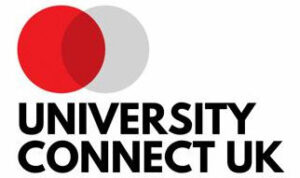Getting a bank account
If you are new to the UK and don’t have a bank account, this article will discuss how to get a bank account. Before opening a new bank account, you need to know two things:
- Different types of bank accounts
- How to open a bank account
Different types of bank accounts
There are different types of bank accounts you can use for different purposes. We will discuss a few of them here. For more information, you can always contact the bank directly:
Current accounts
A current account is the most common bank account, and most of the banks would offer you one. You can use a current bank account to manage your day-to-day activities;
- Paying billings – university fees, rents, transportation, etc.
- Receiving money – salaries, scholarships, benefits, etc.
Some current accounts can also earn you interest on the money you have in the account, although this is likely to be less than many savings accounts. With most current accounts, you will receive a debit card free of charge. However, different banks might charge you a monthly fee for additional services, like overdrafts, phone and travel insurance, etc.
Savings accounts
You can use savings accounts to put away the money you’d like to save for the future, for emergencies, or buy expensive purchases like a new car or a holiday.
A savings account will give you interest in your money.
Student accounts
Some of the UK banks offer special bank accounts for the students. The benefits vary from one bank to another. However, the most common benefits are:
- No monthly fee
- Interest-free overdrafts
- Student discounts in shopping, dine-in, textbook purcharses, etc.
- Ease in sending and receiving money
- Apps to manage day-to-day finance
Basic bank accounts
If you are new to the UK, you would have no credit score. In this case, many of the banks might not offer you a current account instantly. If you’re in this situation, you may be able to open a basic bank account.
If you have a basic bank account, you usually:
- don’t have to have any money to put in the account to open it
- don’t have to pay any fees
- can pay your wages, salary, benefits and tax credits directly into the account
- can pay in cheques and cash
- can pay bills by direct debit
- can withdraw money from cash machines.
How to open a bank account
To open a bank account, you should visit the bank directly. It would be the most hassle-free and easiest way to get the correct types, benefits and charges. The bank staff would ask you to fill an application form. Once completed, they will take the form back and will inform you of the next steps.
Alternatively, you can open a bank account online. Most of the banks allow you to submit your application on their websites. It would take a few steps to complete the application but will take less time to get a decision from the bank. Often the bank will give their decision via email or text messages within minutes.
Usually, most of the banks would ask you to show two types of documents:
- Proof of identification: your passport, driving license, etc.
- Proof of address: council tax, current bills on your name, etc. If you don’t have any of the documents that the bank wants, they should accept a letter from a responsible person who knows you, such as a GP.
If you need more information about coming to the UK to study at one of the top universities, contact our expert student advisors today.
